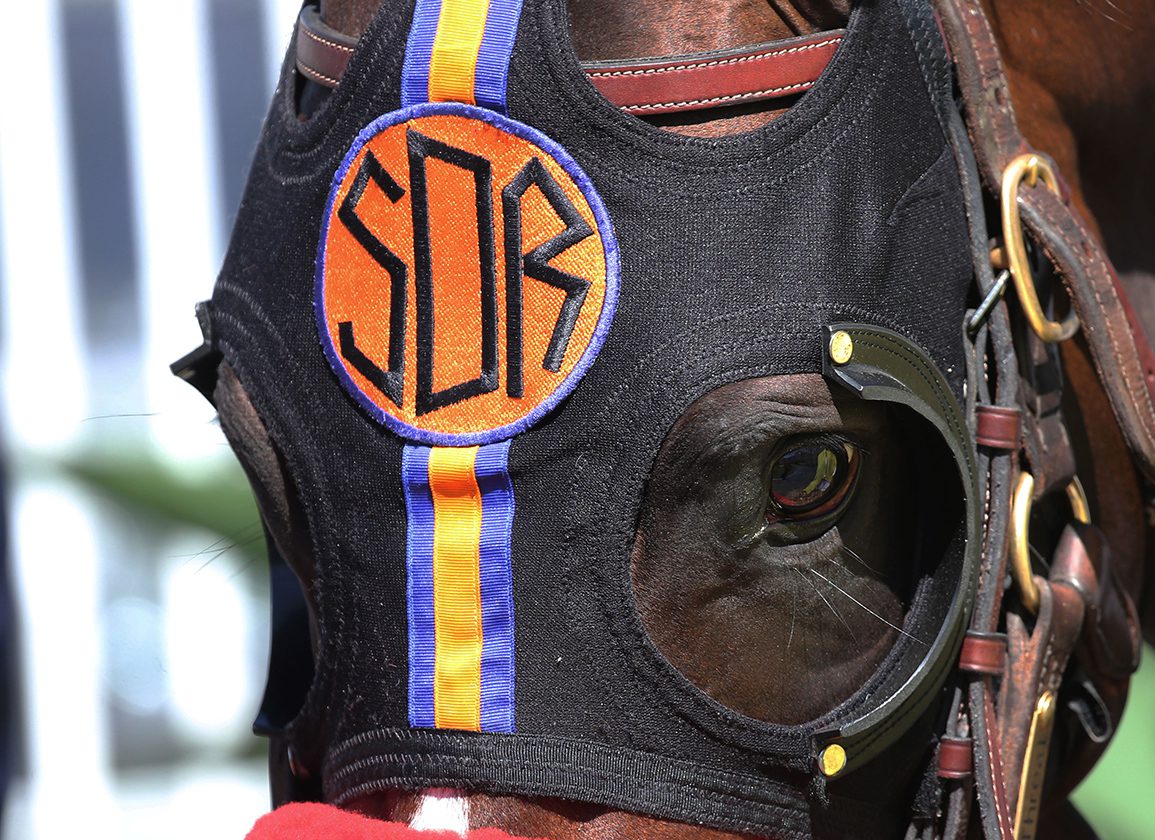By Sue Finley
The notice began appearing on the overnight in early January. “By order of the stewards. Pursuant to NYSGC RULE 4033.8. Effective February 1st, only equipment specifically approved by the stewards shall be worn or carried by a jockey or a horse in a race. No equipment change (including shoes) will be allowed once the overnight is published.”
“There is no new rule,” wrote Brad Maoine, Director of Communications for the New York State Gaming Commission in response to TDN's request for information about the new posting on the overnight. “The intent of the message is (to) ensure that the betting public has access to accurate information regarding equipment changes in a timely fashion.”
But a reading of the NYSGC's rule 4033.8 reveals no mention of a horse's equipment, and reads only, “Only equipment specifically approved by the stewards shall be worn or carried by a jockey or a horse in a race.” There is no mention of equipment changes for horses after the publishing of the overnight in the ruling as stated on the Gaming Commission's website.
Trainers, horsemen's representatives and the NYRA expressed confusion over what the impetus for the rule was, and concern over the repercussions.
Right now, NYRA races are drawn either five, three or two days in advance of the race, with any late changes announced on the t.v. and general address system at the track, and off.
“NYRA has mechanisms in place to inform the betting public in the event of a late equipment change,” said NYRA spokesman Patrick McKenna. “This new rule does nothing to further protect horseplayers and will likely penalize owners for administrative errors that can easily be corrected in real time.”
“I think there are several issues with it,” said trainer Todd Pletcher. “My first concern would be over an occasional shoe situation. We've had scenarios where a horse sheds a frog and we train the horse in an aluminum pad, and we try to keep it on to complete their training, which is usually right up to the day of the race. If you want to make that shoe change you sometimes literally don't know until game day. Entries in most jurisdictions are becoming further and further out, so that's one concern.”
Secondly, he said, “everyone makes mistakes occasionally, and maybe you made an honest mistake and didn't enter with blinkers, and caught it after the overnight came out, or maybe the racing office made a mistake and didn't note blinkers on. It seems as if there should be a 24-hour grace period.”
Trainer David Donk conceded that in a perfect world, trainers would and should indicate changes of equipment at entry time, but that the current system of taking entries by phone, rather than by computer with mandatory fields filled out, made it more likely for errors to be made.
“Why can't I enter online?” said Donk. “Listen, it is the trainer's responsibility. I probably don't have a real problem with it, but is it the commission overstepping? I don't see where it's coming from, and why there can't be a grace period? Common sense says there should be some compromise.”
Donk said that he imagined that the equipment changes hinted at would be blinker changes or the addition of a bar shoe. Attorney Drew Mollica—who has represented numerous clients in conflicts with the Gaming Commission, including two currently–said that he envisioned that the rule would not only make it more likely to cause unnecessary scratches, but could be subject to legal challenges.
“No shoe changes after entry puts the horse in jeopardy and hurts the track,” said Mollica. “Say a horse pops a small quarter crack and needs a bar shoe. If that is announced, does that not protect the owner, the public, the horse and the track? But under this rule, he must scratch. Why?”
“And how about blinkers?” he continued. “Say a horse breezes on the day after entry and the trainer thinks blinkers would help, but now has to scratch or run without equipment that could benefit his performance because the new rule says he must scratch or not wear them? Who does this help? In a game that has enough natural landmines, do we have to plant more?”
Will Alempijevic, the executive director of the New York Thoroughbred Horsemen's Association, replied in an email, “NYTHA is currently engaged in discussions with both the NYSGC and NYRA to understand the issues that precipitated the change. We will continue to play an active role to see if we can collectively come up with proposed solutions to everyone's mutual benefit.”
Not a subscriber? Click here to sign up for the daily PDF or alerts.






